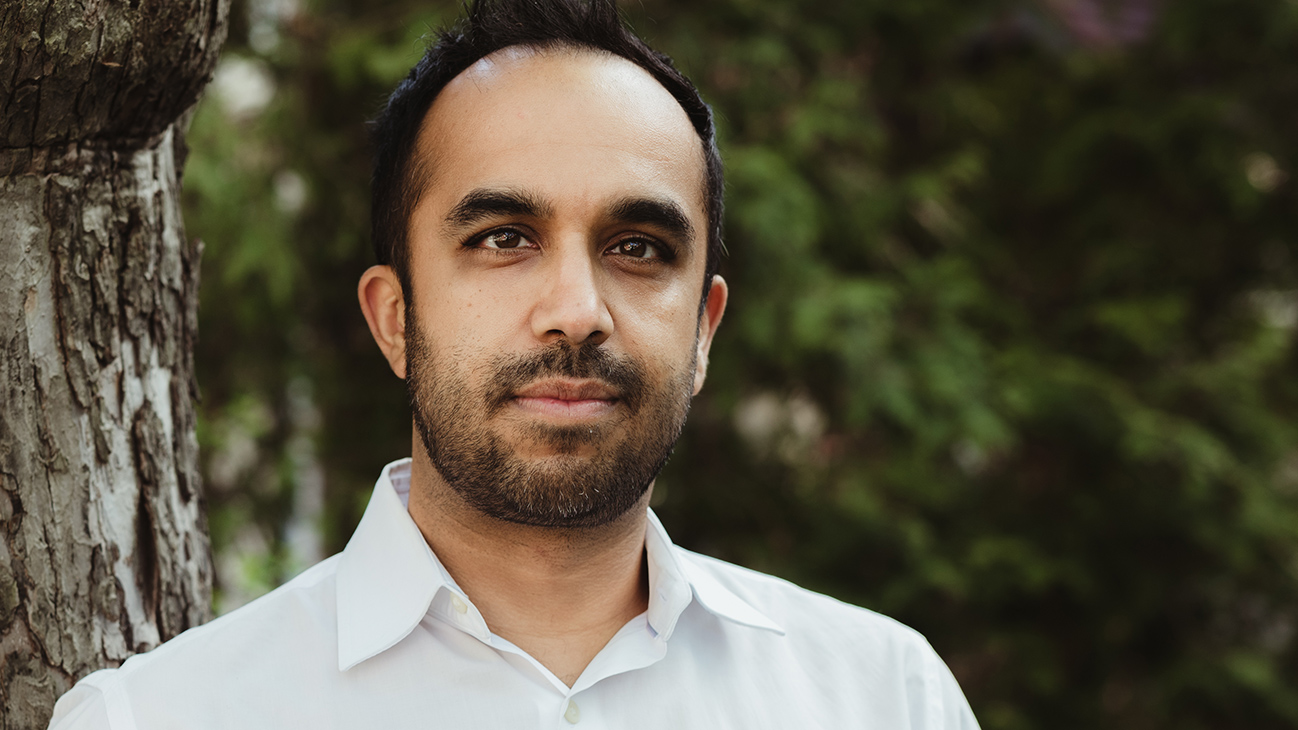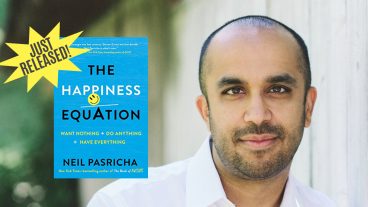Happiness expert Neil Pasricha draws on the latest research in happiness to increase individual performance and create more positive and productive environments.
He recently shared seven tips we can all follow to create a happier home in his column for The Toronto Star.
- Install a family photo wall
How much space is left in your camera roll? I mean, I know we need 17 pictures of the tacos we’re about to eat to make sure there’s perfect lighting on the guacamole and all. But while our phones are holding thousands of pictures, what are we really doing with them? I’m not a “living in the cloud” kind of guy. I think pictures need to be printed and seen to be truly felt. So we have an image of every single member of our family up on a big giant wall near our kitchen. Grandma playing with the kids. A nostalgic paddle boat family photo from the ’80s. It’s impossible not to glance at it a few times a day and feel a sense of belonging. We like to keep it fresh and changing.
- TV downstairs, bookshelf upstairs
We cancelled cable and dropped the TV to the basement. Sure, Netflix continues to seep into the cracks and corners, but there is something magical about putting a bookshelf right by our front door. You know I’m passionate about books. My new podcast 3 Books with Neil Pasricha is all about discussing the formative books of inspiring people like Judy Blume, Seth Godin, and Mitch Albom. So I figure if I’m going to talk the talk, I have to walk the walk. What happens when you put a bookshelf near your front door? It shifts from a nice-looking thing collecting dust to a dynamic organism living and breathing in the room. You add a book here, prune a book there, lend them more casually to people visiting. It’s beautiful, it’s messy, it’s organized, it’s shape-shifting… just like us.
- Chargers in the basement
You know what else goes in the basement? Our cellphone chargers. Building in that 20-second buffer from your bedroom prevents sending 11 p.m. late night emails you always regret in the morning. Plus, you don’t jar your brain senseless with urgent news alerts the moment you wake up. New research shows when we expose our brains to bright screens an hour before bed our brains produce less melatonin — the sleep hormone. Buy a $10 alarm clock and toss the chargers downstairs.
- The five-minute before-bed tidy-up
Who likes cleaning up? Not me. Who cleans up for five minutes before bed every night? Me. Why? Because I sleep better without ketchup-smeared dishes in the sink or sweaty gym clothes on the floor by the dresser. Gretchen Rubin, author of The Happiness Project, writes a lot on this practice and uses the phrase “Outer order contributes to inner calm.”
- Handwritten notes inside cupboard doors
What’s pasted on the inside of your cupboard doors? I’m guessing nothing. Yet this is perfect intimate little canvas space. So next time your partner leaves you a little love letter or note around the house, grab some tape, and stick it inside a kitchen or bathroom cupboard door. Why? Well, it will serve as a little surprise you when you see it… and encourage more notes to follow.
- Give, spend, and save jars
Every month I send out a newsletter to about 35,000 people simply containing a list of what books I read and enjoyed that month. Recently, I highlighted the book The Opposite of Spoiled: Raising Kids Who Are Grounded, Generous, and Smart About Money by Ron Lieber. One of the big ideas in the book is that there are problems linking chores to allowance. First, you erase intrinsic motivation kids should have for a job well done and instead teach them to scrub toilets for cash. Second, you’re trying to teach hard work — a skill they already learn at school, on teams, and at jobs. But you know what they usually never learn? Financial literacy. So the book suggests giving your children three large glass jars labelled “Give” “Save” and “Spend.” Each week you give your child the allowance (without any work needed) and allow them to split the money between jars. And you can pay interest on the “Save” jar. It’s a fun practice and provokes great conversations around money early in life.
- Framed kid’s art at the front door
We have a big wall of children’s art in the house, but the piece de resistance is a giant framed piece at the front door complete with one of those little art gallery labels with the tile and description of the piece. They’re always colourful! And it’s a little mental re-grounding when you walk in the front door about what’s truly important.
A Harvard MBA, New York Times bestselling author, award-winning blogger, and one of the most popular TED speakers in the world, Neil Pasricha is “a pied piper of happiness” who dazzles audiences with ideas that skyrocket happiness into the stratosphere.
His first book, The Book of Awesome, was a runaway #1 international bestseller with millions of copies sold. His newest book, The Happiness Equation: Want Nothing + Do Anything = Have Everything (also an international bestseller), provides step-by-step guidelines to illustrate how to improve your time, your career, your bottom line, your relationships, and ultimately (of course), your happiness.
Interested in learning more about Neil and what he can bring to your next event? Email us at [email protected].




